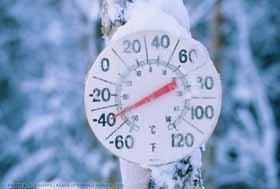The New Year dawned bright and cold in Yorkton. The low temperature January 1 was -33, which felt like -38 with the wind chill, not record setting, but considerably colder than the average of -23. The coldest New Year's Day on record was in 1993 when the mercury dropped to -39.
Environment Canada (EC) reports it is rare for Yorkton to be below -30 on the first day of the year.
EC, the Old Farmer's Almanac and other weather prognosticators all predicted a cold winter for 2013-2014 and so far the data bears that out.
A WeatherSpark analysis indicated December was the coldest month of 2013 with an average daily low of -24 compared to the typical average of -17. December 31, at -37, was the coldest day of the past year. The average low for the last day of the year is -21.
Both November and December had more days with below average temperatures than above average or average combined.
Brian Stanicki, the City's roadway manager, said the cold has played havoc with snow removal efforts.
"The biggest thing with the cold weather has been with the equipment freezing up," he said.
It also means that most days, salt has been useless, he explained, and the crews have put down a lot more sand than usual just to try to give motorists a bit of grip on the roads.
The predictions don't get any better going forward. While both daily lows and high are supposed to be above average this weekend, the long range trend downward. The Almanac predicts an average temperature for January of -20, which is seven degrees below historical averages.
Of course, it often feels much colder than the air temperature. Last week, wind chill values dropped into the -50s at times prompting EC to issue wind chill warnings for Saskatchewan most of the week.
In the near future, possibly this year, EC will stop issuing separate temperature and wind chill readings opting for a system that combines the two factors into a single Extreme Cold Warning.
The government weather agency says it is an evolution of the reporting process designed to give Canadians a better appreciation of the health risks associated with extreme cold whether it is windy or not.




